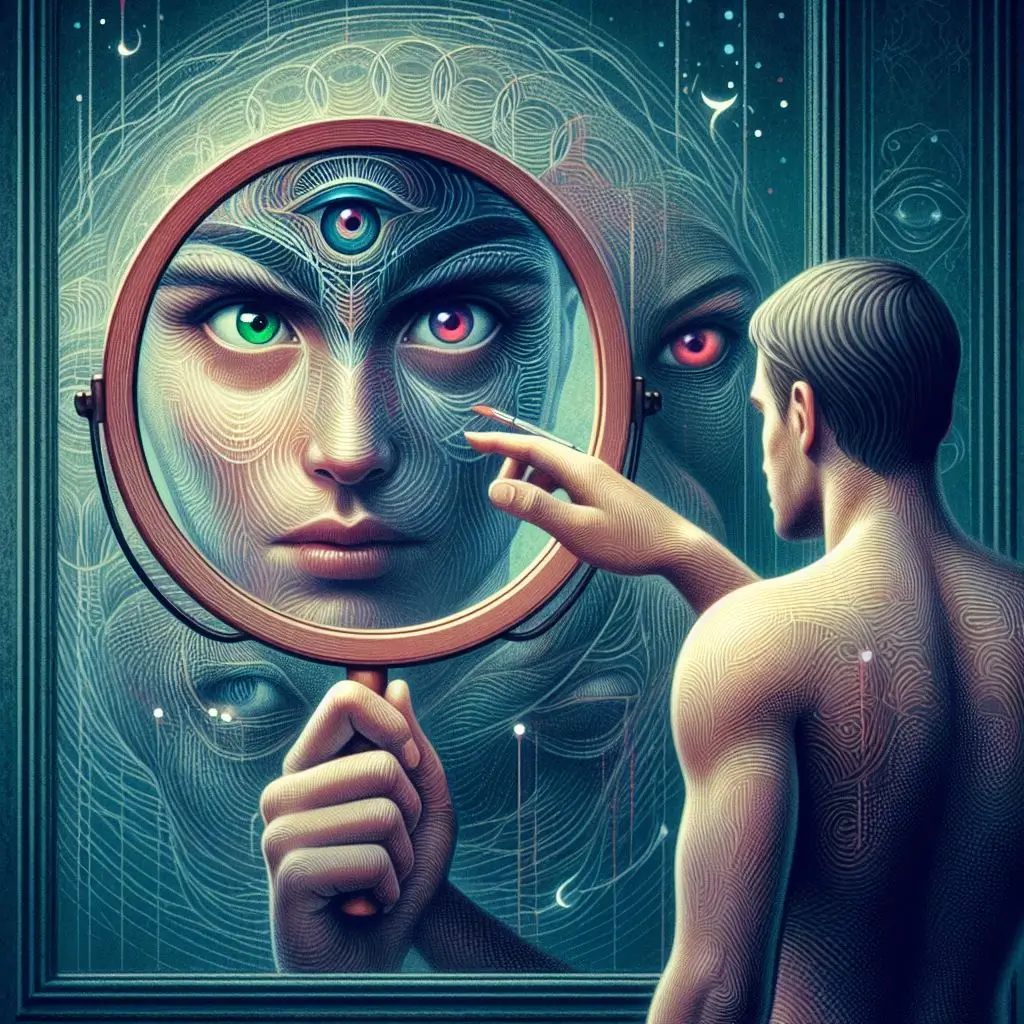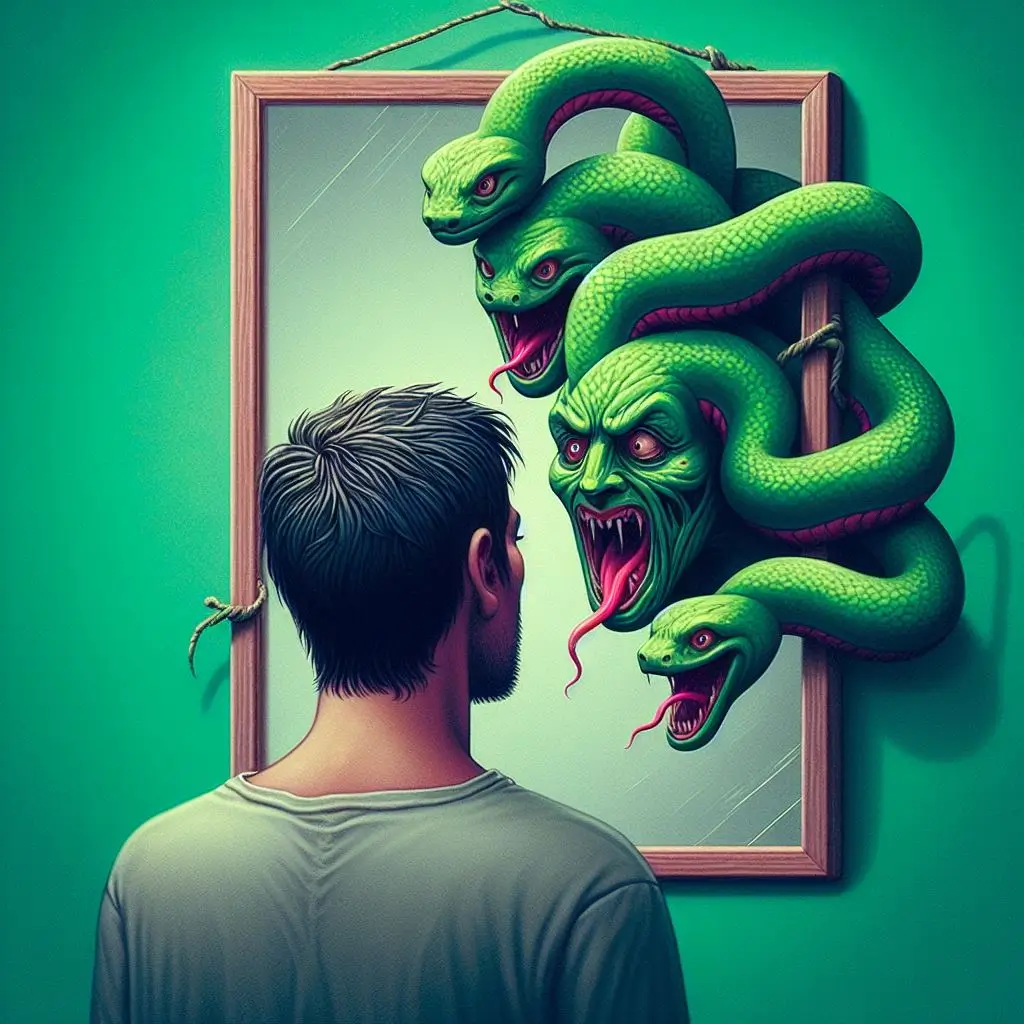So what is narcissistic jealousy? At times, we experience a pang of envy. It’s like a sharp blade cutting through our emotions, leaving a bitter aftertaste of insecurity and resentment. Especially with narcissistic tendencies, envy can create a toxic cocktail of jealousy that corrodes relationships. This blog aims to unravel narcissistic jealousy. We’ll peel back its layers, exposing the intricate web it weaves in interpersonal dynamics.
Brace yourselves to delve into envy’s harmful aspects and the distinctive characteristics of narcissistic personality disorder fueling this destructive emotion. As we journey through vulnerable and grandiose narcissism’s realms, we’ll explore narcissistic jealousy stark impact on relationships. We’ll also look at the psychological distress it inflicts on both parties involved.
Uncover the dark shadows cast by narcissistic envy. We’ll illuminate its connection to psychological abuse, heightened anxiety, and inflated egos caught in its wicked grasp. Through insightful studies and expert insights, we’ll navigate coping strategies and confronting narcissistic jealousy’s pernicious effects on interpersonal connections. This paves the way for healthier, more fulfilling relationships.
Introduction
Narcissistic jealousy is a puzzling emotional state, impacting relationships. It arises from narcissistic traits blended with envy and distorted self-importance. Grasping narcissistic jealousy helps navigate impacted relationships.
Narcissistic jealousy makes individuals fear inadequacy. They crave validation obsessively, believing they deserve superiority. Their inflated ego leads to manipulation. Envy stems from inferiority, a drive to overcompensate. They use tactics to dominate, proving their value.
In relationships, narcissistic jealousy unleashes emotional exploitation and psychological harm. It causes anxiety, distress, lowered self-worth in envied people. Controlling behaviors manifest: stalking, verbal assaults, emotional attacks.
Unpacking narcissistic jealousy’s fascinating depths reveals insight. Exploring its envious roots and exaggerated self-importance helps recognize impacts. Uncovering ways to mitigate harm improves lives affected.
Narcissistic Jealousy Explained

Narcissist jealousy has a deep root — envy. Narcissists crave excessive validation. They struggle with envy towards others’ successes or attention. Comprehending narcissist jealousy helps grasp its impact on relationships.
1. Envy Drives the Core
Jealousy stems from narcissists’ profound sense of envy. Accomplishments of others trigger intense jealous feelings. Fear looms large — being overshadowed fuels unhealthy jealousy levels. The driving force? Fragile self-esteem combined with exaggerated admiration needs.
2. Destructive Patterns Emerge
Narcissist jealousy breeds destructive behaviors. Constant comparisons, belittling others, manipulation — all vying for superiority. Cravings for attention spark controlling, possessive tendencies in relationships. Gaslighting, emotional abuse — tools employed to maintain power, control over partners.
3. An Inflated Self-Importance Weighs Heavily
A feeling of jealousy is strongly tied to narcissists. They see themselves as better than others and expect constant praise. When someone else gets attention or recognition, narcissists feel intense jealousy. They believe that attention should be theirs. This twisted sense of entitlement fuels their jealousy. Narcissists will undermine and devalue those around them because of this.
4. Lacking Empathy, Emotions Run Wild
Narcissists struggle to understand others’ feelings and experiences. This lack of empathy makes it hard for them to genuinely share in others’ joys or successes. Their emotional responses stem from their own insecurities. They may lash out in rage, withdraw, or act passive-aggressively when jealousy strikes.
Understanding narcissistic jealousy’s roots and how it manifests is crucial. It helps those dealing with narcissistic partners and professionals in psychology. Looking at these traits gives insight into the complex relationship dynamics involving narcissistic jealousy.
The Link Between Narcissism and Jealousy

Narcissism and jealousy share a complex bond, especially in personal relationships. Research reveals an intriguing connection between these traits, highlighting distinct behaviors of narcissists.
1. Envy often stems from narcissists’ grandiose self-perception and craving for admiration. They become jealous when their inflated egos face threats or fear losing the attention they demand.
2. A narcissist’s sense of entitlement runs deep. When their expectations aren’t met, jealousy and envy arise, potentially fueling harmful actions.
3. Narcissists lack empathy and emotional control. This emotional intelligence deficit makes understanding others’ emotions challenging, breeding jealousy. Regulating feelings proves difficult.
4. Fragile self-esteem plagues narcissists, making them prone to jealousy. Comparing themselves to others and feeling threatened by others’ success or attention triggers envy.
Narcissistic people often feel jealous in relationships. Studies show they view partners as belongings. They dislike others getting their partner’s attention. This jealousy happens because narcissists lack self-worth. They feel entitled to their partner’s full focus, lacking empathy for others’ perspectives.
Knowing narcissism’s link to jealousy helps those affected. It’s vital to grasp how narcissistic traits impact relationships. Strategies like open talks, empathy practice, and controlling emotions foster healthier bonds. Through better understanding, couples can balance fulfilling connections.
Exploring the Dark Side of Envy

Envy is a common emotion. It can turn harmful when mixed with narcissism, creating narcissistic envy. This dark, damaging emotion greatly impacts personal relationships and causes problems.
Narcissists feel deeply inferior and crave validation. They have an unrealistic sense of self-importance. They view others as competitors, not equals. When others succeed, narcissists feel painfully inferior. The achievements seem like attacks on their grand self-image.
Narcissists’ envy leads to destructive behaviors: psychological abuse, emotional manipulation, lack of empathy. The envied person faces undeserved criticism, belittlement, sabotage. By exploiting others emotionally, narcissists bolster their fragile egos and hide inadequacy feelings.
Narcissistic envy severely impacts personal bonds. Narcissists direct jealousy and animosity towards loved ones: partners, friends, family. Trust erodes. Resentment grows. Discord spreads. The envied person constantly walks on eggshells to avoid triggering insecurities.
Many folks think jealousy isn’t a big deal. But for narcissists, it’s more than just a feeling — it rules their world. They harm others to prop up their huge egos. Feeling superior is everything to them.
If someone you know struggles with narcissistic jealousy, set firm boundaries. Keep talking openly. Therapy can really help untangle this web of toxicity. Understanding why envy arises in narcissists is key to overcoming its damage.
The dark side of envy reveals a lot about the link between narcissism and jealousy. Studying this can help address the harm narcissistic envy causes. With effort, we can build connections based on trust, compassion, and real closeness.
The Neuroscience of Pathological Narcissistic Envy

Narcissistic envy is a complex emotion. It involves abnormal brain functions. Understanding the neuroscience behind it helps us grasp how narcissists experience envy. We delve into the neurological factors causing this destructive emotion.
Understanding the Neurological Basis
Research shows envy in narcissists differs from ordinary envy. It’s a dark form, revealing neural differences in envy processing. Studies indicate when narcissists envy someone, brain regions like the anterior insula and anterior cingulate cortex show heightened activity. These areas process emotions and assess social threats.
Abnormal Functioning of Brain Networks
The ventral striatum, part of the brain’s reward system, also functions abnormally in narcissistic envy. This region processes rewards and regulates dopamine, a neurotransmitter involved in motivation and pleasure. In narcissists, the ventral striatum shows atypical functioning, leading to an exaggerated reward response when the envied person faces misfortune or failure. It’s a complex neurological phenomenon.
Lack of True Self-Reflection
Narcissists lack true self-awareness. Their overinflated egos prevent acknowledging flaws. They cannot admit others’ accomplishments. This perpetuates envy, devaluing threats to superiority.
Implications for Relationships
Narcissistic envy’s neuroscience significantly impacts relationships. It exposes the root jealousy cause in narcissists, revealing exploitative emotional patterns and psychological abuse. Understanding envy’s neural differences navigates narcissistic jealousy relationships insightfully and empathetically.
In conclusion, pathological narcissistic envy’s neuroscience provides invaluable insights into disordered brain network functioning for narcissistic personality disorder individuals. Unraveling neurological jealousy factors nurtures comprehension of complex relationship dynamics. This empowers employing effective strategies managing and navigating narcissistic jealousy’s interpersonal impacts.
Strategies to Handle Jealousy from Narcissists
When narcissistic jealousy impacts relationships, approach it carefully and thoughtfully. These practical strategies can help decrease its negative effects:
1. Set Clear Limits
Clearly define and communicate what’s okay and not okay in the relationship. Consistently reinforce these boundaries. This helps protect your emotional well-being and prevent manipulation often seen with narcissistic traits.
2. Prioritize Self-Care
Taking care of yourself is vital when dealing with narcissistic jealousy. Do joyful activities, self-care practices, and surround yourself with supportive loved ones. Nurturing your well-being helps cope with narcissistic behavior’s challenges.
3. Seek Professional Guidance
Consider consulting a therapist experienced with narcissistic personality traits. They provide guidance, support, and tools for managing narcissistic jealousy’s effects. Therapy helps develop coping mechanisms and assertiveness.
4. Maintain Realistic Expectations
Realize you cannot modify or govern a narcissist’s behavior. Maintain realistic aims and grasp that deep-rooted jealousy may persist within them. Focus on managing your role in the relationship and seek satisfaction elsewhere in life.
5. Foster Empathy and Compassion
Even when challenging, nurturing empathy and compassion towards the jealous narcissistic partner can ease conflicts. Jealousy often stems from profound insecurities and vulnerabilities, though this doesn’t excuse or enable their conduct, but rather approaches them with empathy while upholding firm boundaries.
6. Preserve Your Independence
Retaining a sense of self and independence proves crucial when navigating narcissistic jealousy. Nourish your own passions, hobbies, and goals. By asserting your individuality and preserving your independence, you minimize the impact of narcissistic tendencies on your self-esteem and well-being.
7. Surround Yourself with Support
Having a robust support system proves vital when navigating a relationship affected by narcissistic jealousy. Seek support from trusted friends, family members, or support groups who offer validation, guidance, and perspective. Share your experiences and feelings, and lean on others for emotional support during challenging times.
Remember, dealing with narcissistic jealousy can drain emotions and prove difficult. Prioritize your well-being and seek professional help when needed. By implementing these strategies, you mitigate the effects of narcissistic jealousy and foster healthier relationships.
Conclusion
In conclusion, grasping and addressing narcissistic jealousy is crucial for healthy relationships. This article examined the roots and impact of narcissistic envy. It illuminated characteristics and behaviors tied to this toxic trait.
Narcissistic jealousy stems from deep self-importance. It manifests in harmful ways, with people who have narcissistic personality disorder struggling with feelings of inferiority. They project insecurities onto others, leading to emotional exploitation and abuse in relationships.
Research highlights the neurological factors underlying narcissistic envy. Abnormal brain network functioning, like the ventral striatum and anterior insula, contributes to intense emotional responses. It causes distorted threat perceptions narcissists experience.
Dealing with narcissistic jealousy needs patience and careful navigation. Setting boundaries, self-care, and professional help can manage relationships affected by narcissistic behavior. Prioritizing personal well-being and recognizing toxic relationships is essential.
By recognizing signs and effects of narcissistic jealousy, people can protect themselves. They can take steps to maintain emotional health and avoid damaging consequences with narcissistic partners.
Recollect, comprehending and tackling envious narcissism is vital for encouraging good relationships. By raising awareness and seeking proper support, people can handle narcissistic behavior nuances. They can then work towards healthier bonds.
